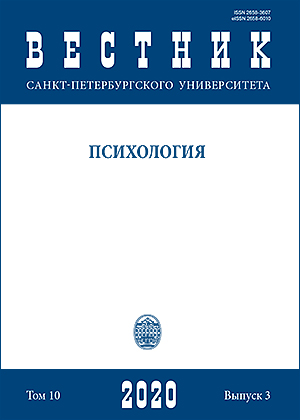Emotion recognition as a marker of emotional regulation deficits in substance use disorder: Review of current research
DOI:
https://doi.org/10.21638/spbu16.2020.310Abstract
Current theoretical models of addictive disorders view addictive behaviour as a way to prevent or avoid a negative emotional state. The mechanisms of emotional regulation mediate the effect of stressors on human behaviour, allowing the formation of more or less adaptive behavioural patterns. Deficits of emotional regulation are described in many substance abuse disorders and are seen as a multifaceted construct that includes lack of awareness, comprehension, and acceptance of emotions, inability to control behaviour during emotional experiences, lack of access to adaptive strategies to change the duration or intensity of negative emotional experiences, and unwillingness to experience emotional stress. The recognition of emotions by facial expression is extremely important for the ability to form and maintain a social relationship because it allows you to quickly (automatically) decode the emotional state of another person and adapt your behaviour relative to these social cues. The fundamental question of the relationship between the mechanisms of regulation of one’s emotions and recognition of other people’s emotions by facial expression remains insufficiently studied at the moment. This article aims to present relevant research in the field of studying disorders of emotional regulation and recognition of emotions in substance use disorder, and to determine the relationship between these phenomena with a further assessment of the significance for the prediction and therapy of addictions.
Keywords:
emotion recognition, facial expression, emotion regulation, substance use disorder, alcohol use disorder, emotional dysregulation
Downloads
References
References
Downloads
Published
How to Cite
Issue
Section
License
Articles of "Vestnik of Saint Petersburg University. Psychology" are open access distributed under the terms of the License Agreement with Saint Petersburg State University, which permits to the authors unrestricted distribution and self-archiving free of charge.




